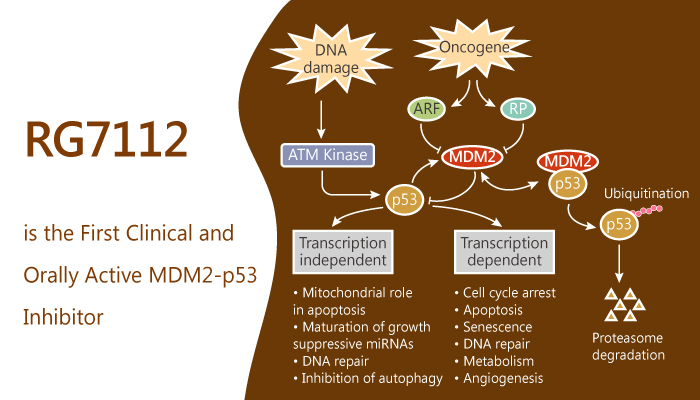Yesterday, I introduced AMG 232 as a potent, selective and orally available inhibitor of p53-MDM2 interaction. Additionally, we have known the significance of MDM2-p53 interaction in cancer development. Today, I’d like to introduce another orally available MDM-2-p53 intreraction inhibitor, RG7112.

RG7112 binds selectively to the p53 pocket on the surface of the MDM2 with high affinity. Additionally, it blocks p53-MDM2 binding, leading to stabilization and accumulation of p53 protein and activation of the p53 pathway. The compound has good oral bioavailability and shows strong tumor growth inhibition and regression in animals.
In vitro, RG7112 (2.5 μM) is more active against proliferation of liposarcoma cells, and especially those with wild-type p53. Treatment of cells with either Nutlin-3A or RG7112 induces cell-cycle arrest and apoptosis in the p53-WT cell line 93T449. RG7112 treatment reduces cell viability much more than Nutlin-3A in HT-1080, SW684, 93T449, and SW872 cells. RG7112 shows potent antitumor activity against a panel of solid tumor cell lines. Treatment of cancer cells expressing wild-type p53 with RG7112 activates the p53 pathway, leading to cell-cycle arrest and apoptosis.
In vivo, RG7112 is highly synergistic with androgen deprivation in LNCaP xenograft tumors. RG7112 (25-200 mg/kg, p.o.) to human xenograft-bearing mice at nontoxic concentrations causes dose-dependent changes in proliferation/apoptosis biomarkers as well as tumor inhibition and regression.
To conclude, RG7112 is effective in treatment of solid tumors expressing wild-type p53.